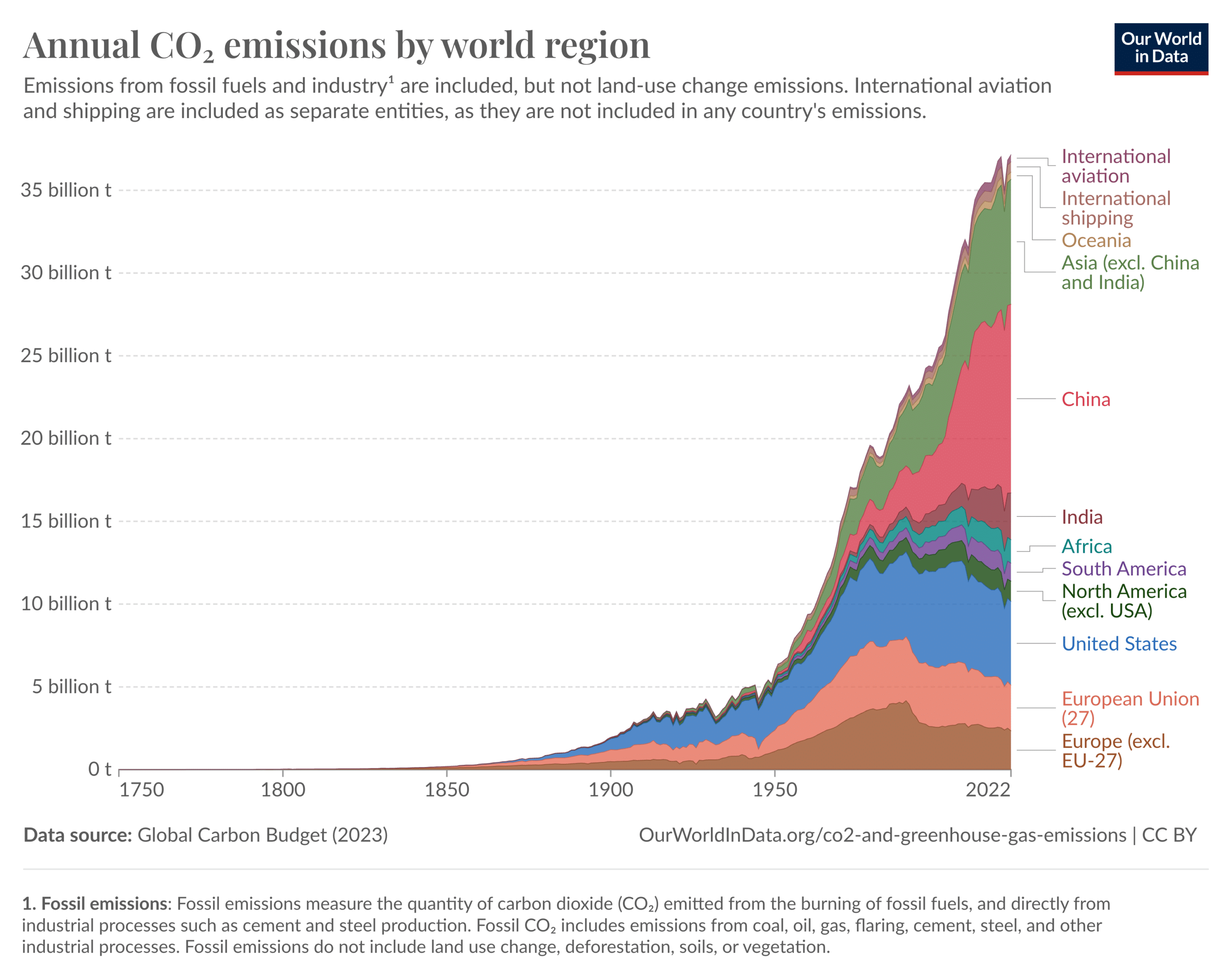New data indicates that global emissions from human activity may have plateaued, suggesting a critical shift towards clean energy amidst rising atmospheric CO2 levels and severe climate events.
Global emissions from human activity may have finally reached a plateau, according to recent data from the Carbon Monitor Project. Between February and May 2024, global climate pollution slightly decreased from the same period in 2023, suggesting that the transition to clean energy is stabilising emissions, and peak climate pollution could be occurring now.
This potential peak happens amidst concerning trends. The National Oceanic and Atmospheric Administration (NOAA) reported in early June that atmospheric carbon dioxide (CO2) is accumulating faster than ever, with this acceleration coinciding with unprecedented heatwaves, droughts, floods, wildfires, and storms over the last year. NOAA Administrator Rick Spinrad emphasised the urgency of addressing fossil fuel use to mitigate ongoing damage to the climate system.
“Now we are finding that atmospheric CO2 levels are increasing faster than ever,” he commented. “We must recognize that these are clear signals of the damage carbon dioxide pollution is doing to the climate system, and take rapid action to cut fossil fuel use as quickly as we can.”

The rise in atmospheric CO2 levels, despite peaking emissions, is the result of centuries of increasing fossil fuel consumption. Economic growth, barring periods like global recessions or pandemics, has driven a consistent rise in fossil fuel use. Ralph Keeling, director of the Scripps CO2 program, likened fossil fuel pollution to waste accumulating in a landfill, emphasising that its effects are persistent and cumulative.
Although emissions seem to have peaked, they are at unsustainably high levels and must decrease rapidly to achieve net zero by mid-century. The clean energy transition has softened the trend, with global emissions increasing by about 1% in recent years, despite economic growth. However, global climate pollution has continued to rise to record levels year after year.
Key players in this global effort include China and the United States, as their energy policies significantly impact global emissions. In China, coal power and economic growth contribute substantially to global emissions. Meanwhile, the outcome of the U.S. presidential election could pivot national climate policy. A report by Carbon Brief suggests that a continuation of current U.S. emissions policies under a Trump presidency could add 4 billion tons of emissions, equivalent to the combined annual emissions of Europe and Japan.
According to the International Energy Agency, global energy-related carbon pollution outside China saw a slight decline in 2023. Climate Analytics stated there is a 70% probability that emissions would start falling in 2024 if clean technology growth continues and non-CO2 emissions are also reduced.
Progress in clean technologies, particularly in 2024, has been promising. Rapid solar and wind generation growth covered a significant proportion of new electricity demand in China. Electric vehicles now represent a notable share of new vehicles on Chinese roads. Commenting to Yale Climate Connections, Belinda Schäpe from the Centre for Research on Energy and Clean Air highlighted the fast-paced expansion of low-carbon energy sources and a reduction in emissions from the industrial sector due to declining real estate activities in China. She said: “The clean energy sector in China has seen unparalleled growth. For the first time, the expansion rate of low-carbon energy sources is sufficient to exceed the average annual increase in China’s electricity demand. If this growth continues and energy demand stabilizes, following the unprecedented energy-intensive economic recovery, fossil fuel consumption could go down.”
Globally, other countries need to enhance their clean energy transitions. Europe has experienced declining emissions attributed to increased solar, wind, and heat pump installations, alongside efforts to reduce reliance on Russian natural gas. However, political shifts such as gains by far-right parties in the European Parliament elections might slow climate action, though centrist majorities are expected to keep current policies largely intact.
The International Energy Agency estimated that without the deployment of key clean energy technologies since 2019, global emissions would have increased significantly more than they did. Achieving peak emissions is a critical milestone in the broader goal of reducing emissions to net zero and stabilising the Earth’s climate.

